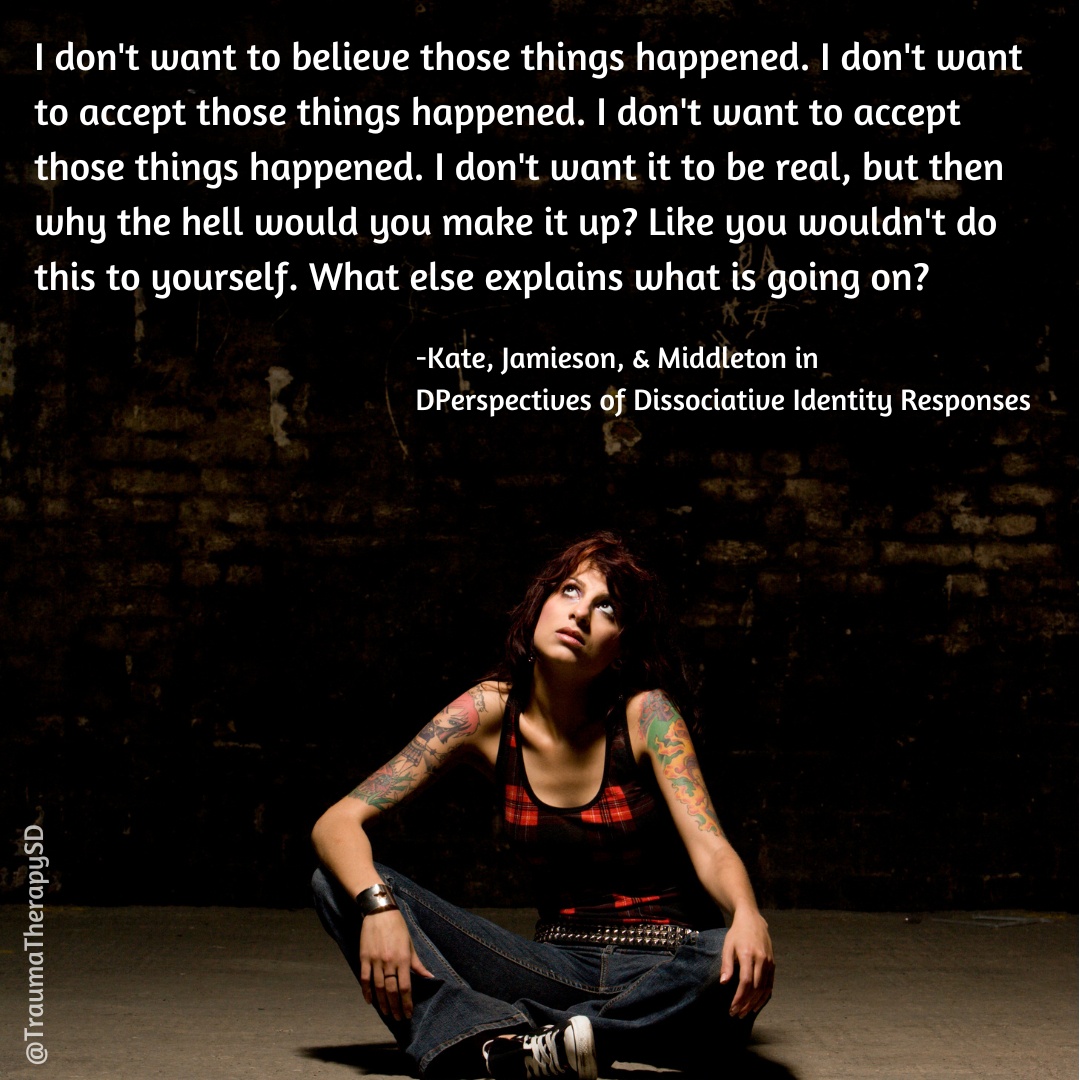Quote from Mary-Ann Kate, Graham Jamieson, and Warwick Middleton

In their chapter in Perspectives of Dissociative Identity Responses, Kate, Jamieson, and Middleton quote a woman with Dissociative Identity Disorder (DID), I don’t want to believe those things happened. I don’t want to accept those things happened. I don’t want it to be real, but then why the hell would you make it up? Like you wouldn’t do this to yourself. What else explains what is going on?”
This is a perfect description of a common issue that comes up with people who have DID/OSDD, it is the conflicting of wanting and not wanting to know. This is a conflict that comes up a lot in trauma work in general.
We don’t want to believe that terrible things happened to us at the hands of those who were supposed to care for and protect us, that reality is sad and terrible.
But if that reality is denied, where does that leave the person with these memories and feelings? It leaves them questioning their reality and memories.
All of this is to say, that it is normal for folks with DID/OSDD to periodically question the diagnosis and experiences that caused the fragmentation and to think that perhaps they made it up.
This questioning and disbelief should not be taken at face value and instead they should be taken with compassionate curiosity. Why is this disbelief coming up now? What would it mean if the memories are true? What would it mean to them if the memories are not true?










